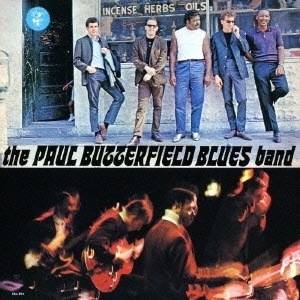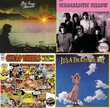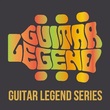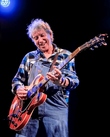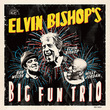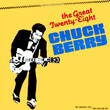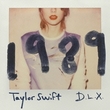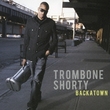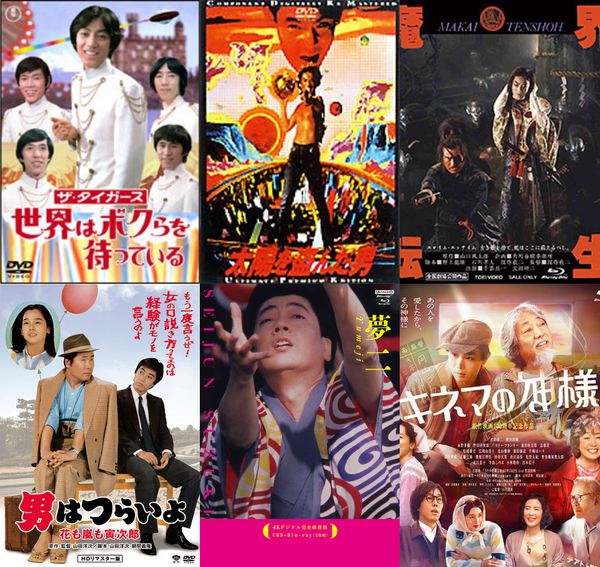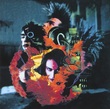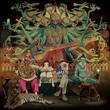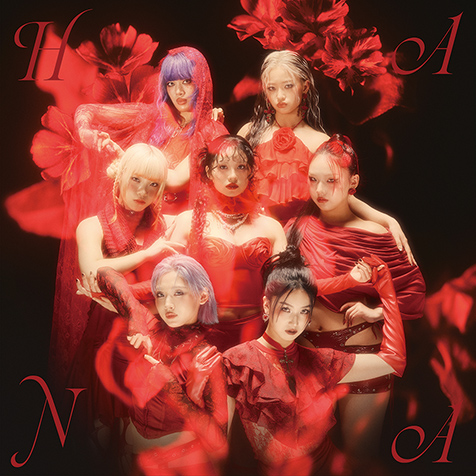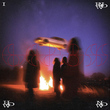4月にセレモニーが行われた〈ロックの殿堂〉こと〈The Rock and Roll Hall of Fame〉では、ロックの偉人としてふさわしい多数のアーティストが殿堂入りを果たした。こういった場では政治的な面や妥当性が議論されることもあるが、今年は単にトップ40チャートに入ったヒット曲があるかどうかや一時的な人気について考慮するだけではなく、音楽そのものに影響を与え続けているアーティストを認定しているので上々のラインナップだった。殿堂入りしたのは、リンゴ・スター、ジョーン・ジェット(ジョーン・ジェット&ザ・ブラックハーツ)、ルー・リード、ビル・ウィザース、スティーヴィー・レイ・ヴォーン(スティーヴィー・レイ・ヴォーン&ダブル・トラブル)、ファイヴ・ロイヤルズ、グリーン・デイ、そして個人的に最も嬉しいポール・バターフィールド・ブルース・バンド(以下:PBBB)だ。
PBBB(1964-1966)は殿堂入りアーティストのなかで唯一トップ40チャート入りしたシングルもアルバムもなく、ほぼオリジナル・メンバーで制作された初期のアルバム3作品はそれぞれチャートで123位、65位、52位だった。ファイヴ・ロイヤルズ(1952-1961)と同様、 PBBBの顔ぶれは現在多少知られている。しかし、60年代を生きた多くの音楽ファンにとって、PBBBはとても重要な存在だった。今回の殿堂入りを記念し、バンドの歴史とオリジナル・メンバーのエルヴィン・ビショップが語る彼自身のキャリアについて紹介しよう。
エルヴィン・ビショップは、オクラホマ州タルサの農村で育ち、ウィル・ロジャース高校に通った。彼は厳しい農作業にはあきらかに向いていないタイプであり、学校では優秀な成績を修めシカゴ大学に進学するための奨学金を得た。自宅は電力不足で電池式のラジオでしか音楽に触れる機会はなかったが、彼はブルースを好むようになり、より多くのブルースに触れられるシカゴに行くことを楽しみにしていた。
1962年のシカゴに到着した初日、エルヴィンが道を歩いていたところ「家の前で座り込んでギターを演奏しながら1クォート(約0.95リットル)のビールを飲んでいる男」に出会った。彼こそがポール・バターフィールドだった。彼はアイルランド人の祖先を持ち、法律家の息子で、膝を怪我するまでは人気スポーツ選手だった。2人はブルースへの愛を語り合ってすぐに意気投合、一緒に演奏をし始めた。ポールは現在ハーモニカの名手として知られているが、エルヴィンが出会った当時はまだハーモニカを吹いたことがなかったというから驚きだ。しかし、ポールは子供の頃にフルートを習った経験があった。「彼はハーモニカを始めるとすぐ上達した。生まれつきの天才だよ」とエルヴィンは語っている。
2人はクラブに出入りするようになり、できる限りいつでもライヴを行った。「当時シカゴではバンドは毎晩9時から朝4時まで、土曜日は朝5時まで演奏していた。どんな人でもいい、朝の2時や3時に座って自分たちの演奏を聴いてくれる人がいるのがうれしかった。そんなふうにして僕らは多くの経験を積んだ」。当時は白人の若者が粗野で乱暴な雰囲気の黒人用クラブに出入りすることはかなり珍しかった。「ミュージシャンたちはすごく親切にしてくれたよ。ドラッグやギャングが出てくる前の話だけどね。たくさん友達ができたよ」。エルヴィンとポールは音楽のセンスを磨き、その演奏と音楽への情熱を見せることで友人を作っていった。エルヴィンの初めての定例ライヴでは、偉大なハーモニカ奏者であるジュニア・ウェルズと一緒に演奏した。その後はハウンド・ドッグ・テイラーと一緒に演奏し、シカゴ・ブルースの一流プレイヤーたちとフルメニューでの共演を果たしてジャム・セッションを行った。 そのうちエルヴィンとポールは自分たちのバンドを結成したいと決意し、リズム・セクションを招集した。それは単なるリズム・セクションではなく、ブルースのアイコンであるハウリン・ウルフやほかのシカゴ・ブルースの有名アーティストたちとも過去に一緒にツアーを回ったことがあるベーシストのジェローム・アーノルドと、ドラマーのサム・レイだった。
1964年7月2日にアメリカの公民権法が成立したが、すぐには全国で施行されなかった。1964年8月にシカゴで人種暴動が発生し、1965年8月のワッツ や1967年のニューアークなど、ほかにも多数の暴動が起きた。バンドはライヴをする際に〈白人用〉ホテルに滞在できなかったり、〈白人用〉レストランで食事できなかったりすることがしばしばあったし、路上では頻繁に人種的な緊張が漂っていた。エルヴィンは当時について「僕がバンドで活動して誇りに思うことは2つあって、ひとつは異なる人種の人間が仲良く一緒に活動できることをある意味で証明したこと、そしてもうひとつブルースを一般大衆にクロスオーヴァーして届けらることでできたことだよ。当時、白人がブルースを目にする機会はフォーク・ミュージックのフェスティヴァルに限られていた。ブルースはフォーク・ミュージックの一部だと考えられていたんだ」と語っている。
そんな苦境にも負けず、PBBBは演奏を続けた。「2年間にわたって1週間のうち6晩は〈Big John’s〉というクラブで演奏し続けたよ。我々はそこで有名になったんだ」。彼らは徐々にシカゴ以外でも、そして時々ジャズ・クラブやフォーク・ミュージックのクラブでも、演奏するようになった。バンドは確かな評判を築き、ある日プロデューサーのポール・ロスチャイルドが彼らを見に来た。彼は感銘を受けたようで、エルヴィンは「ポールは将来有望なアーティストを嗅ぎ回っていたよ」と説明する。その後、ロスチャイルドは別のライヴに行き、もうひとりの驚くべき白人ギタリスト、マイク・ブルームフィールドに出会った。
マイク・ブルームフィールドは裕福なユダヤ人の家庭に生まれたが、10代の早い時期からブルースに魅了されていた。彼は家で働いていたメイドを通してマディ・ウォーターズやリトル・ウォルター、オーティス・ラッシュのような伝説のブルース・ミュージシャンたちと出会い、15歳になる頃には彼らとジャム・セッションしながらステージに立っていた。彼はブルースを熱心に研究し、年上のミュージシャンたちにインタヴューしながら録音することさえあり、膨大なブルースの知識を得ていった。さらに、常に練習を続けることで聴く者の心を動かす情熱的な演奏スタイルを磨いた。ポール・ロスチャイルドは、マイク・ブルームフィールドをPBBBに勧誘し、バンドでレコーディングする計画を立て始めた。マイクの提案により、彼らがスタジオに入る直前にキーボード奏者のマーク・ナフタリンがバンドに加入することになった。彼はあまりにも直前に加入しすぎたので、デビュー・アルバムにおけるバンドの写真には登場していない。
セルフ・タイトルを冠したデビュー・アルバムは、バンドの友人だったニック・グレイブンアイツが作曲し、現在はスタンダード曲となった“Born In Chicago”のようなオリジナル曲も数曲収録されている。しかし、メインは彼らがライヴで力強く演奏していたエルモア・ジェイムズ“Shake Your Moneymaker”、マディ・ウォーターズ“I Got My Mojo Working”、ジュニア・パーカー“Mystery Train”といったブルース・ナンバーだ。このアルバムは賞賛を浴びたが、適度にチャートを賑わせただけだった。エルヴィンは「大衆的なレコードというより、ミュージシャンのためのアルバムだった。知名度にかかわらず多くのミュージシャンが僕のところにやってきて言った。〈あのアルバムはよかった〉って。それで気分が良くなったね」と語っている。バンドはライヴを行うことで、アルバムの売り上げを伸ばしていった。「演奏するチャンスがあればどこででも、すごくいい感じに演奏したよ」。当時のブルース、主にアコースティックなブルースはちょうど復活し始めたところで、たいていフォーク・ミュージックと一括りにされていた。しかしPBBBは、素晴らしいエレクトリックなブルースを演奏し、マイク1本でフィールドやホテルの部屋でレコーディングするのでなく、〈エレクトラ・レコード〉のプロデューサーと現代的なスタジオでレコーディングを行った。エレクトラは後にロック・ミュージックの大手レーベルに成長するが、当時はフィル・オックスやジュディ・コリンズなど適度な売り上げがあるアーティストのみが所属するフォーク・ミュージックのレーベルだった。PBBBは力強く気骨があって魅力的で、当時のポップ・ミュージックとは一線を画していた。1965年にはローリング・ストーンズがロックとブルースのカバー曲をレコーディングし、オリジナル曲も作曲し始めた。PBBB、ヤードバーズ、キャンド・ヒート、ストーンズのようなバンドによって、メインストリームのリスナーがエレクトリックなブルースに興味を持って熱狂するようになったと言える。
PBBBの初期からのファンのひとりが、フォーク・シンガーのボブ・ディランだ。どちらも1965年7月に開催された〈ニューポート・ジャズ・フェスティヴァル〉に出演が決まっており、直前にディランがPBBBにサポートを依頼した。マイク・ブルームフィールドとサム・レイは過去にボブ・ディラン“Like A Rolling Stone”のレコーディングに参加したことがあり、それは当日夜に彼らが演奏した曲のうちの1曲でもある。この日のステージは〈ボブ・ディランがエレクトリックになった〉とフォーク純粋主義者を動揺させたことで、その後もいろいろと議論されてきた。エルヴィンもディランか何度もサポートをお願いをされたがその依頼は見送り、当日はフォーク・ブルースを楽しんでいたとされる。いわく「(そのときは)会場のまったく別の場所でマンス・リップスコーンやミシシッピ・ジョン・ハートを観ていて、(ディランは)まったく観ていない」とのこと。
PBBBのセカンド・アルバム『East-West』(1966)はブルース・サウンドを追求しつつ、ジャズ・コルネット奏者のナット・アダレイ“Work Song”、 ニューオーリンズのR&Bシンガーであるリー・ドーシーの“Get Out My Life Woman”、インド音楽やジョン・コルトレーン式の音楽や幻覚ドラッグから影響を受けた13分に及ぶジャム・セッションで有名なタイトル曲“East-West”を加えることで広がりを見せている。そこにはドラッグの影響もあったとエルヴィンは指摘する。「シェイクダンサーがいたり、どこぞの女の人がいて、それが蛇を持ってたり、ただ踊ってたり……」。彼が言わんとしているのはつまり、バンド・セットの合間にエロティックなダンス、時にベリー・ダンス、バーレスク、シミー(1920年代に流行したジャズ・ダンスの一種)を踊る女性たちのことを示していた。彼女たちが主に踊る音楽は、重厚なビートが流れる東洋っぽい音楽だった。「あまり知られていないことを教えてあげるよ。マイク・ブルームフィールドは、よくその曲に合わせて火を食べるアクションをやっていたよ」(ティンパニーのスティックとライターオイルを使用していたらしい)。また、“East-West”はロックの歴史においてしっかりと作曲されたポップ・ソングよりもジャム・セッションをフィーチャーした最初の曲だったとも言える。これによって、アルバム『Super Session』やほかのジャム・セッションを基本とした作品が大きな成功を納めることにつながった。
セカンド・アルバムのリリース後にバンドはツアーを回り、1967年6月にはカリフォルニアを訪ね伝説の〈モントレー・ポップ・フェスティバル〉に出演。エルヴィンはフェスをとても楽しみ、ほかのバンドもチェックしたという。ジャニス・ジョプリンはレコードを聴いた限りでは大ファンにはならなかったが、「彼女は実際そんなにキーに基づいて歌うわけではないんだ」と言いながら、その力強い歌唱スタイルとカリスマ性に圧倒された。そして、ジミ・ヘンドリックスのダイナミックなステージや、オーティス・レディングがコンチネンタル・スーツを着て〈フラワーチルドレン〉のために演奏する姿にやられた。バンドはイギリスにも渡り、そこでもアーティストをチェックした。エルヴィンいわく「我々はみんな、ジョン・メイオールとエリック・クラプトンは好きな感じだったよ。でも正直言うと、ローリング・ストーンズにそんなに思い入れはなかった。彼らはもっとロック的な視点でやっていたからね。クラプトンはもっとブルースに通じるところがあった」。イギリスのブルースに触れたものの、そんなに影響は受けなかったそうだ。「我々はマディ・ウォーターズ、ハウリン・ウルフ、マジック・サムみたいな人たちがいるシカゴで活動していたからね」。
バンドは決定的に大きな成功と適度な商業的成功を達成したにもかかわらず、アルバム2枚をリリースした後にメンバー変更を経験した。マイク・ブルームフィールドがバンドを離れ、ホーンを使用して〈アメリカン・ミュージック〉を演奏するためにエレクトリック・フラッグを結成。サム・レイはデビュー・アルバムのリリース後に病気のため離脱し、代わりにブルース界のベテランであるビリー・ダベンポートが加入した。サム・レイは長く素晴らしいキャリアを活かして、ロック、ブルース、ジャズで殿堂入りし、ローリング・ストーンズのカヴァー・アルバムにおけるオリジナル曲で演奏し、現在イギー・ポップとして世界的に知られる、デトロイト近郊出身の10代だったジェイムズ・オスターバーグにドラムのレッスンを行った。
PBBBのサード・アルバム『The Resurrection Of Pigboy Crabshaw』は、田舎者のイメージであるエルヴィン・ビショップのニックネームに由来している。マイク・ブルームフィールドの去就により、エルヴィンはギターの演奏をより多く担当するようになった。新しいリズム・セクションが加入し、ドラムにフィル・ウィルソン(後にアート・アンサンブル・オブ・シカゴと一緒に演奏する人物)、ベースにバグジー・モー、ホーン・セクションにデヴィッド・サンボーン(そう、後にジャズ界のスーパースターになる人物)を含む男性3人が加わった。ブルースを基盤にR&Bテイストを少々加えたアルバムは、ボビー“ブルー”ブランドを真似てホーンを使用し、チャート最上位を記録する作品となった。
サード・アルバムのリリース後、エルヴィン・ビショップは「つらい感情も口論もない、そういうことは何もない」と友好的なコメントを残してバンドを離れ、サンフランシスコのベイエリアに移り住んだ。マイク・ブルームフィールドも同じ街に移住し、そんなに多くないが幾つかのプロジェクトで一緒に活動した。エルヴィンは慎重に当たり障りなく「時々、個人的な習慣はつきあう人間に影響を受けるようなところがある」と語っている。おそらくマイク・ブルームフィールドのドラッグ使用について言及しているのだろう。PBBBはサンフランシスコで演奏し、そこで非常に熱狂的に受け入れられて、開放的で溢れんばかりのヴァイブと温暖な気候が作り出す感じの良さを身につけた。エルヴィン・ビショップはプロモーターのビル・グレアムが立ち上げたばかりのレーベル〈フィルモア・レコード〉と契約を交わした。グレアムは実際にエルヴィン・ビショップをマネージメントしたがっていたが、エルヴィンは「ボンクラになりつつあるよ。注文や期待に応えることを始めるには歳を取り過ぎている」と答えた。しかしながら、エルヴィンは彼に敬意を払っていて、ヒッピーの観客にブルースを届けるため、また多数のブルースとジャズのアーティストを鼓舞するために、彼に信頼を置いていた。「彼は人々を様々な種類の音楽に対してオープンマインドにさせるために本当に多くのことをしたんだ」。
エルヴィン・ビショップはさらに発展を遂げ、ジャム・セッションにオープンであり続け、グレイトフル・デッド、エリック・クラプトン、オールマン・ ブラザーズ、BB・キング、ジミ・ヘンドリックスなど多数のアーティストと一緒に、〈フィルモア〉のような大きなライヴハウスや〈カフェ・オ・ゴー・ゴー〉や〈ザ・ジェネレーション〉のようなNYのクラブのアフターアワーズで演奏した。1972年に〈エピック・レコード〉に移籍し、彼にとって画期的な出来事となるソロ・アルバム『Rock My Soul』を制作。このアルバムにはタイトル曲“Rock My Soul”と“Rock Bottom”が収録され、両曲とも黒人R&Bシンガーのジョー・ベイカー(後にストーン・グラウンドというバンドに参加する人物)をフィーチャーしている。アルバムはベイエリアと、ほかのもっと涼しい気候のエリアでもヒットを記録し、両曲ともいまだに時々ライヴで聴くことができる。「あれはハプニングで、自分のキャリアに多くのことをもたらしたよ」。
それからエルヴィンは、個人的な友人であるオールマン・ ブラザーズやマーシャル・タッカーも所属し当時勢いのあった〈カプリコーン・レコード〉に移籍した。レーベルには〈サザン・ロック〉のイメージがあり、農村的なルーツがある彼にはぴったり合っていた。カプリコーンでのファースト・アルバム『Let It Flow』は、ブルーグラス・フィドル奏者のバッサー・クレメンツ、R&Bの巨匠スライ・ストーン、ディッキー・ベッツ、トイ・コールドウェル、チャーリー・ダニエルズなど幅広いゲストをフィーチャーした作品になった。そして1976年にリリースした7枚目のソロ・アルバム『Hometown Boy Makes Good!』は、最大のヒット曲“Fooled Around And Fell In Love”を生むことになった。エルヴィンとプロデューサーのビル・シムジクは、この特別なラヴソングをよりスムーズな響きを持つ声で歌えるシンガーが必要だと決心し、バック・シンガーのミッキー・トーマスを起用した。この曲が世界的ヒットとなり、ビルボード・チャート3位を記録したのだ。現在も人気の曲であり続け、これまでにもロッド・スチュワートや日本のSuperflyによってカバーされている。2014年には興行成績1位を獲得した映画「ガーディアンズ・オブ・ギャラクシー」のサントラにも使用されて再び脚光を浴びた。
デビューから約40年近く経っているが、エルヴィンはいまもなお需要が高い。アルバムは安定して売れ続けており、ライヴ・エンタテイナーとして人気も特筆すべき点だ。彼は同世代のアーティストはもちろん、BB・キングやジェイムズ・コットンのような先人のアーティスト、デレク・トラックスやウォーレン・ヘインズのような比較的若いアーティストとも演奏やレコーディングを行っている。何度も来日しており、直近だと2013年の〈FUJI ROCK FESTIVAL〉に出演している(滞在中には親友のCharとジャムっていたことを懐かしく思い出す)。彼の音楽はいまもブルースが基盤になっていて、ギター演奏はあいかわらずシャープで、彼のお茶目な田舎的ユーモアが加わり、活き活きとした楽しいライヴを行っている。
彼はかつて酒好きで、70~80年代はパーティー三昧の生活を送っていたが、もう20年以上は酒宴から遠ざかっている。定期的にツアーを回っており、ライヴはより選択するようになったという。ベイエリアの同じ家に40年以上住み続けていて、現在はガーデニングに熱心だ。「(ガーデニングのおかげで)地獄から抜け出したよ。すごく楽しいんだ」と語り、ファストフードと空港での軽食を食べ続ける長年のツアー生活を経て、いまは自分で育てたものを食べることを楽しんでいるようだ。数種類の種を日本から特別に取り寄せることもあるらしい。彼は日本語に興味を持つようになり、勉強を始めた。50歳を超えてから日本語を始めるなんてクレイジーだと他人から言われても、本人は「自分がやりたいことは何でもやるんだ」と返す。彼が話す日本語にはオクラホマ州の話しぶりとアクセントがあるが、漢字も得意だ。現在はシカゴを拠点とするブルース・レーベル〈アリゲーター・レコード〉に所属しており、最新作は2014年発表のアルバム『Can't Even Do Wrong Right』。エルヴィンと、いまも健在のPBBBのメンバー(1981年にマイク・ブルームフィールド、1987年にポール・バターフィールドが、いずれもドラッグのオーヴァードーズで逝去している)は、ブルースを愛する仲間でJ・ガイルズ・バンドのシンガーであるピーター・ウルフによって殿堂入りアーティストとして表彰された。PBBBは殿堂入りにふさわしいアーティストで、今回認定されたことは喜ばしい。活気に溢れ力強い南部風の音楽を続けているエルヴィン・ビショップと会話を交わすことも、また素晴らしい経験だった。
[English]
Elvin Bishop
TeThe Rock'N'Roll Hall of Fame earlier this month inducted a number of deserving artists into their pantheon of rock greatness. The politics and validity of a such a place can be argued, but this year they did a good job giving recognition to artists who had a lasting impact on music, not just counting top 40 hits or a blip of short-lived fame. Hail Ringo, Joan Jett, Lou Reed, Bill Withers, Stevie Ray Vaughn, The "5" Royales, Green Day, and for me, most esp. hail The Paul Butterfield Blues Band. Of the inductees, the first three albums which contained most of the original members charted at #123, #65 and #52. Along with The "5" Royales (1952-1961), the Paul Butterfield Blues Band (with the line-up just inducted (1964-1966) might be the least known today. However, for many who lived thru the 60’s, the Paul Butterfield Blues Band were hugely important. To mark the occasion, the following is a history of the band, and his own career, as told by original member Elvin Bishop.
Elvin Bishop grew up in a farming community in Tulsa, Oklahoma and attended Will Rogers High School. Certain that the grueling hard work of farming wasn't for him, he did well in school and was granted a scholarship to the University of Chicago. His exposure to music was limited, given that his house lacked electricity and he only heard music via a battery driven radio. However he acquired a taste for blues, and looked forward to going to Chicago where he could get a larger dose.
In 1962, on his very first day in Chicago he was walking down the street when he saw "a guy sitting down in front of a house, playing guitar and drinking a quart of beer". That guy was Paul Butterfield, of Irish descent, son of a lawyer and a star athlete until stricken a knee injury. They struck up a conversation about their mutual love for blues, then soon became friends and started playing together. While Paul Butterfield is today widely considered a master of harmonica, amazingly when Elvin first met him he had yet to take up the instrument. He did however study flute as a youngster. Elvin comments that "he started up on harmonica and took straight off, just a natural genius." The two started hanging out in clubs and playing whenever they could. "In those days in Chicago, bands would play from 9 in the evening to 4 every night, until 5 on Saturdays... and it didn't matter how good the guy was, they're glad to have you sit in come 2, 3 in the morning. And I got a lot of experience that way." Young white guys hanging out in rough and rowdy black clubs was pretty rare in those days. "The musicians were very nice to me, this was before drugs and gangs...I became friends with a lot of the guys." Elvin and Paul built their chops and made friends thru their playing and their enthusiasm for the music. Elvin's first regular gig was playing with harmonica great Junior Wells. He later played with Hound Dog Taylor and jammed with a full menu of top Chicago blues players. Eventually Elvin and Paul decided they wanted their own band, and drafted a rhythm section, and not just any rhythm section, they drafted bassist Jerome Arnold and drummer Sam Lay, both who previously toured with blues icon Howlin' Wolf and other major names in Chicago blues.
The US Civil Rights Act did not pass until July 2, 1964, and was not immediately enforced everywhere. The Chicago race riots took place in August 1964, Watts in August 1965 and with many in between. When the band played out they at times could not stay at "white" hotels or eat at "white" restaurants, and on the streets there was often racial tension. Elvin says of the times "the two things I am proud of, being in that band, we kind of showed that people from different races could get along and work together... and we were instrumental in crossing the blues over to the general public... the only time a white person would ever see any blues in those days was at a folk festival... the blues was considered a small part of folk music."
Despite the hardships, the Paul Butterfield Blues Band stuck with it, and played "six nights a week for two years straight at a place called Big John's...that's where we became popular." They eventually started playing outside Chicago, at times at jazz or folk clubs. The band built a solid reputation, and producer Paul Rothchild showed up to check them out. He was impressed, and Elvin says "he somehow sniffed out it was the coming thing". After, he went to another gig and saw another amazing you white guitarist, Mike Bloomfield.
Bloomfield was from a wealthy Jewish family, but in his early teens gravitated to the blues. He met blues legends like Muddy Waters, Little Walter and Otis Rush via his family's maid, and by the time he was 15 he was on stage jamming with them. Bloomfield studied the genre intensely, even taped interviews of older players and gained a massive knowledge of the the blues. And he matched this by practicing constantly, and developing an intense, passionate playing style. Rothchild nudged Bloomfield into the Paul Butterfield Band and started making plans to record them. Shortly before they went to the studio keyboard player Mark Naftlan was recruited to join the band at Bloomfield's suggestion. So late was he added that he does not appear on the first album’s band photo.
Their self-titled debut album contains some original material, like the now standard number "Born in Chicago", written by band friend Nick Gravenites, but was made up primarily of blues numbers they had hammered out live, like Elmore James "Shake Your Moneymaker" and Muddy Waters "I Got My Mojo Working" and Junior Parker's "Mystery Train". The album received much critical acclaim, but only did moderately well on the charts. Elvin comments "It was more a musicians album than a popular record…many musicians, famous and not, have come up to me and said- 'that album got me going' and that makes me feel good." They helped sustain album sales by playing live, "wherever we got a chance to play, we moved 'em real good". At the time blues, mostly acoustic blues, was just starting to enjoy a revival, and then was usually lumped together with folk music. But the PBBB were playing solid electric blues, and recorded not with a single mike in a field or hotel room, but with Elektra's house producer in modern studios. While Elektra later became a powerhouse rock label, at the time they were a folk music label with only moderate selling acts like Phil Ochs and Judy Collins. The Paul Butterfield Blues Bands music was powerful, gritty and mesmerizing, quite unlike the pop music of the day. In 1965 the Rolling Stones were recording mostly rock and blues covers, and just then starting to write their own material. It was bands like the PBBB, the Yardbirds, Canned Heat and the Stones that got mainstream audiences interested and excited about electric blues.
One of the Paul Butterfield Bands early fans was a folk singer named Bob Dylan. Both the PBBB and Dylan were booked to play the Newport Jazz Festival in July of 1965, and on short notice Dylan asked the band to back him. Bloomfield and Lay had previously recorded "LIke A Rolling Stone" with him, and it was one of the songs they played that night. Much has been made of the Newport Festival when "Dylan went electric" as it upset some folk purists. Elvin Bishop says he has been asked about it many times, but he passed on Dylan and was listening to folk blues that day "I didn't see any of it, I was at the other end of the festival with Mance Liscomb and Mississippi John Hurt."
The PBBB's second album "East-West" in 1966 maintained their straight ahead blues sound, but stretched out, adding "Work Song" by jazz horn player Nat Adderley, a version of New Orleans R&B singer Lee Dorsey's "Get Out My Life Woman", and the much talked about title track "East-West", a 13 minute jam influenced by Indian music, John Coltrane's modal music and a psychedelic drugs. Elvin Bishop points out that it had a baser influence as well -"shake dancers.. some ole' chick..sometimes she had a snake, some times just dancing", which is to say women who did erotic dances, sometimes belly dancing, burlesque or shimmying, in between band sets. The music they danced to was typically vaguely Eastern with a heavy beat. "I'll tell you something most people don't know, Bloomfiled used to do a fire eating act with that song." using a kettle drum stick and lighter fluid. The song was also amongst the first in the rock era that featured a jam rather than a tightly composed pop song, and this led to hugely successful "Super Sessions", and other jam based records.
After the second album the band toured, including a trip to California where they played the legendary Monterey Pop Festival in June 1967. Elvin very much enjoyed the festival and checking out other bands. He mentioned he was previously not a big fan of Janis Joplin based on her records, commenting that she "didn't particularly sing on key real often", but was won over by her powerful singing style and charisma, was knocked out by Hendrix’s dynamic show and Otis Redding playing in his continental suit for the "flower children". The band also went to England and checked out players there. Elvin says "we all kind of liked Mayall and Clapton, but didn't think much of the Stones to be honest with you... they were coming at it more from a rock angle... Clapton had more a reference for the blues". While he was aware of British Blues, they were not much of an influence, "we were right there in Chicago with Muddy Waters and Howlin Wolf, Magic Sam, those guys".
Despite the band's huge critical success, and moderate commercial success, after just two albums it began to shift personnel. Mike Bloomfield left to form Electric Flag, which had horns and aimed to play 'American music'. Sam Lay had left after the first album due to illness and was replaced by blues veteran Billy Davenport. Sam Lay's long and amazing career has placed him in the rock, blues and jazz hall of fames, he played on the original of records the Stones covered, and gave drum lessons at one time to a Detroit teenager named James Osterberg, who the world knows now as Iggy Pop.
The PBBB's third album was called "The Resurrection of Pigboy Crabshaw", after a nickname for Elvin Bishop, based on his country bumpkin image. With Bloomfield gone, Elvin Bishop took over more of the guitar work. A new rhythm section was introduced, Phil Wilson (who later played with the Art Ensemble of Chicago) on drums, Bugsy Maugh on bass, and a three man horn section was added, one of them being David Sanborn (yes, the one that later became a jazz superstar). The resulting album, which added a bit more R&B to the blues base, horns ala Bobby Blue Bland, and became their highest charting release.
After the third album, Elvin Bishop left that band under friendly terms "no hard feelings, no arguments, none of that", and moved to the San Francisco Bay area. Mike Bloomfield also moved to the Bay Area, and they did some projects together, but not a lot, Elvin carefully and tactfully says "sometimes your personal habits kind of dictate who you hang out with", seemingly a reference to Bloomfield's use of drugs. The PBBB had played SF, and were very enthusiastically received, and found the open and exuberant vibe and warm weather inviting. Elvin signed a deal with Fillmore Records, a label that promoter Bill Graham had just started. Graham in fact wanted to manage Elvin, but Elvin told him "being a dumb ass… I'm too old to start taking orders." Elvin, however, holds Graham in high regard, and credits him for bring the blues to the hippie audience, and invigorating the careers of many blues and jazz musicians. "He did a whole lot towards opening up peoples minds to different varieties of music".
Elvin indeed stretched out, and remained open to jam, which led him to play with the Grateful Dead, Eric Clapton, the Allman Brothers, BB King and Jimi Hendrix, amongst others, at big venues like the Fillmore, and at after-hours at NY clubs like the Cafe Au-Go-Go and The Generation.
In 1972, he moved to Epic Records and made his landmark solo album "Rock My Soul." The album featured the title track and "Rock Bottom", both featuring black R&B singer Jo Baker, who would later join the band Stoneground. The album was a hit in the Bay Area and to a lesser degree elsewhere, and both songs can still be heard at times in his set. "That was a happening thing, it did my career a lot of good".
From there Elvin jumped to the then thriving Capricorn Records, which was home to the Allman Brothers and Marshall Tucker, both of whom were his personal friends. The label had a 'southern rock' image, which Elvin, with his farming roots fit right in with. His first album with Capricorn featured a wide range of guests, including bluegrass fiddle player Vassar Clements, R&B master Sly Stone, Dickey Betts, Toy Caldwell and Charlie Daniels. However it was his seventh solo album in 1976, that he had his biggest hit "Fooled Around and Fell In Love". Elvin and producer Bill Szymczyk decided they needed a singer with a smoother sounding voice for this particular love song., and drafted backing singer Mickey Thomas. The track became a worldwide hit, going to #3 in Billboard. The song remains popular to this day, has been covered by Rod Stewart and Japan's own Superfly. It received a huge boost again last year being featured on the "Guardians of the Galaxy" soundtrack, which went to #1.
Now nearly forty years later Elvin remains much in demand. His albums sell steadily, and he is especially popular as a live entertainer. He plays and records with players from his generation, old timers like BB King and James Cotton, and relative youngsters like Derek Trucks and Warren Haynes. He has played in Japan a number of times, most recently at 2013's Fuji Rock (and he fondly remembers jamming with his buddy Char while there). His music is still blues based, his guitar playing is still sharp and his sly country humor helps make a lively, fun show.
Elvin at one time was a drinker, and partied plenty hard thru the 70's and 80's, but has been off booze now for well over 20 years. He still tours regularly but says he is more selective about the gigs he takes. He has lived in the same house in the Bay Area for over 40 years, and is enthusiastic about his gardening Elvin says "I dig the hell out of it, it's a lot of fun", and says that he enjoys eating food he grows after so many years eating fast food and airport food while touring. He also mentions that he special orders some seeds from Japan. He became intrigued by the Japanese language and began studying it. Even though people told him starting Japanese when he was over 50 was crazy, he answered "ah shit I’ll do whatever I want to." While his spoken Japanese still carries his Oklahoma drawl and accent, he has a black belt in kanji. He currently records for the Chicago based blues label Alligator and his most recent album is 2014's "Can't Even Do Wrong Right". Elvin and the other surviving members of the PBBB (Bloomfield died in 1981 and Butterfield in 1987, both from drug overdoses) received their induction from a fellow blues enthusiast, Peter Wolf singer of the J Geils Band.
It is great to see the Paul Butterfield Blues Band get the recognition they so definitely deserve, and excellent to speak with Elvin Bishop, who carries on making lively, robust, downhome music.
